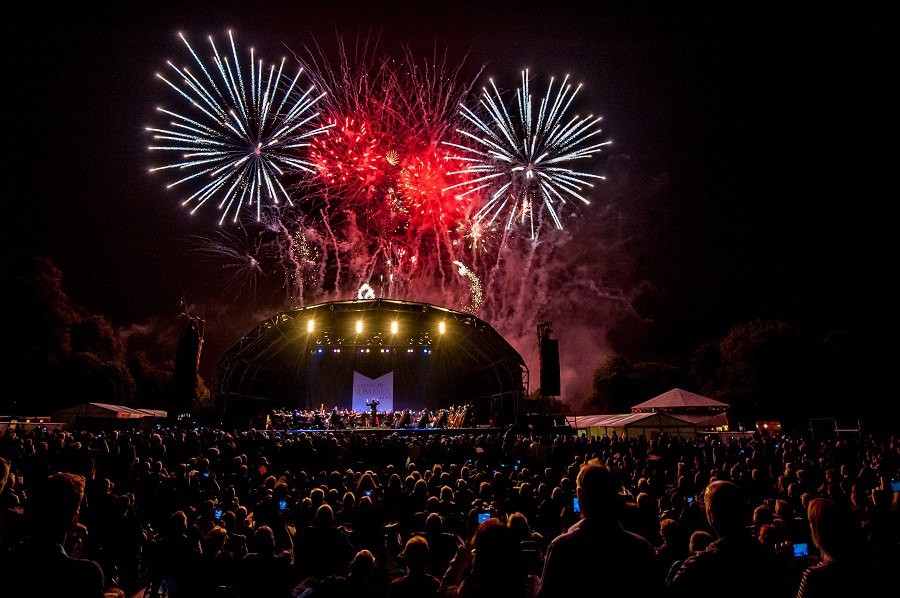A dedicated commercial team within Liverpool City Council’s cultural service has generated more than £6 million in cash and in-kind support in four years. This case study is part of the achieving efficiencies section of our online Culture Hub.
Becoming European Capital of Culture in 2008 gave Liverpool a valuable opportunity to demonstrate its cultural strength to a global audience. Since then, Liverpool City Council has continued to use culture as a driving force for regeneration.
In 2013, a new commercial and marketing team was formed within Culture Liverpool, the council’s cultural service, to build connections across the city and generate income. The team consists of four full-time sales leads, three commercial and marketing assistants, three marketing managers and a graphic designer. The sales lead posts are self-sufficient in that each is tasked with generating 2.5 times their salary each year.
The team secures income (cash and in-kind) to help maintain the city’s cultural agenda and its ability to produce major events using both traditional and bespoke commercial models. They have a remit to engage with the private sector, creating and highlighting commercial opportunities within Culture Liverpool and across other city assets including sport, corporate development and media.
Having an integrated commercial and marketing team ensures maximum return on investment for sponsors and partners. Multi-media strategic marketing campaigns can be created which feature key sponsor messaging across all available assets. The team also works to attract high-profile commercial events, locking them in on multi-year deals. They are currently working in partnership with key players including the Arena & Convention Centre, Marketing Liverpool and Liverpool Vision to develop a sustainable model for private sector funding to support both content (major events) and destination marketing to audiences.
Impact of the project
In four years, the team has generated over £6 million in cash and in-kind support. This success has highlighted the commercial potential across the council, and the team is projected to grow on an invest-to-earn basis.
Liverpool’s annual programme of events includes Liverpool International Music Festival, the International Mersey River Festival and Chinese New Year. The ‘Mayoral 100 Club’ was developed as a corporate network to fund the River Festival and is endorsed by Liverpool’s Mayor, Joe Anderson. It also presents a high-value opportunity for businesses to access an audience of 250,000. Membership is set at two tiers (£3,000 or £1,500), making it accessible to businesses of all sizes. The benefits include:
- four networking events a year, hosted by the Mayor
- exclusive corporate hospitality opportunities
- first opportunities to sponsor other events/festivals
- opportunities to raise the profile of products, venues and assets to other members
- four tickets to the Mayor’s Gala Dinner.
Looking to the future
The 10th anniversary of City of Culture in 2018 presents new opportunities to engage with the corporate sector to help finance the cultural vibrancy of Liverpool. The team is developing one overarching tiered sponsorship opportunity and Mayoral initiative aligned to the ’18 for Eighteen’ cultural programme of events and exhibitions to celebrate the anniversary. They will also work with other local councils to engage with businesses that have an interest in the wider city region. The Mayoral 100 Club will be re-branded the ‘Mayoral 1,000’, seeking 1,000 business to help develop a sustainable model of funding arts and culture.
Key learning points
- Commercial awareness must be firmly embedded into everyone’s thinking and in the mind-set of all delivery teams, including marketing, communications and events.
- Event experiential activity and creating memories for consumers builds brand loyalty, providing a much bigger return on investment for sponsors and partners.
- A commercial team must be experienced in events, production, creative, marketing and public relations.
- Investing in commercial staffing resource in the short term will save in the long term.
For further information contact Susan Finnegan, Head of Commercial & Marketing, Culture Liverpool: [email protected]
This case study has been developed in conjunction with Arts Council England


